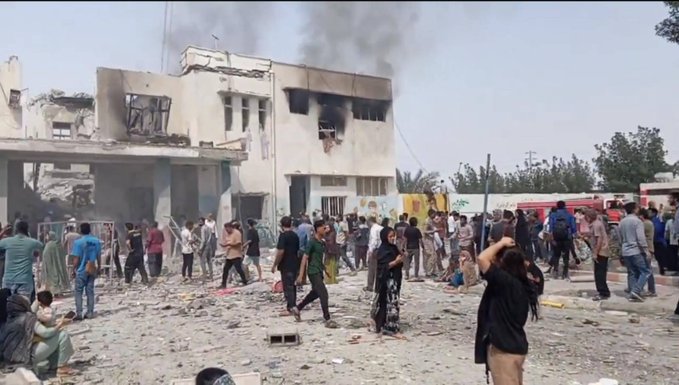
Solidarity Therapeutics Trial produces conclusive evidence on the effectiveness of repurposed drugs for COVID-19
Geneva: Interim results from the Solidarity Therapeutics Trial, coordinated and funded by the World Health Organization, indicate that Remdesivir, Hydroxychloroquine, Lopinavir/Ritonavir and Interferon regimens appeared to have little or no effect on 28-day mortality or the in-hospital course of COVID-19 among hospitalized patients.
Newer antiviral drugs, immunomodulators and anti-SARS COV-2 monoclonal antibodies are now being considered for evaluation.
The study, which spans more than 30 countries, looked at the effects of these treatments on overall mortality, initiation of ventilation, and duration of hospital stay in hospitalized patients. Other uses of the drugs, for example in treatment of patients in the community or for prevention, would have to be examined using different trials.
The progress achieved by the Solidarity Therapeutics Trial shows that large international trials are possible, even during a pandemic, and offer the promise of quickly and reliably answering critical public health questions concerning therapeutics, the WHO stated today, adding that in just six months, the world’s largest randomized control trial on COVID-19 therapeutics has generated conclusive evidence on the effectiveness of repurposed drugs for the treatment of COVID-19.
The global platform of the Solidarity Trial is ready to rapidly evaluate promising new treatment options, with nearly 500 hospitals open as trial sites, the WHO said.
It may be mentioned that the WHO expert groups had recommended mortality trials in hospitalized COVID-19 of four re-purposed antiviral drugs. The Study drugs were Remdesivir, Hydroxychloroquine, Lopinavir (fixed-dose combination with Ritonavir) and Interferon-β1a (mainly subcutaneous; initially with Lopinavir, later not).
COVID-19 in-patients were randomized equally between whichever study drugs were locally available and open control (up to 5 options: 4 active and local standard-of-care).
The intent-to-treat primary analyses were of in-hospital mortality in the 4 pairwise comparisons of each study drug versus its controls (concurrently allocated the same management without that drug, despite availability). In 405 hospitals in 30 countries 11,266 adults were randomized, with 2750 allocated Remdesivir, 954 Hydroxychloroquine, 1411 Lopinavir, 651 Interferon plus Lopinavir, 1412 only Interferon, and 4088 no study drug.
The study found that compliance was 94-96% midway through treatment, with 2-6% crossover. 1253 deaths were reported (at median day 8, IQR 4-14). Kaplan-Meier 28-day mortality was 12% (39% if already ventilated at randomization, 10% otherwise).
Death rate ratios (with 95% CIs and numbers dead/randomized, each drug versus its control) were: Remdesivir RR=0.95 (0.81-1.11, p=0.50; 301/2743 active vs 303/2708 control), Hydroxychloroquine RR=1.19 (0.89-1.59, p=0.23; 104/947 vs 84/906), Lopinavir RR=1.00 (0.79-1.25, p=0.97; 148/1399 vs 146/1372) and Interferon RR=1.16 (0.96-1.39, p=0.11; 243/2050 versus 216/2050).
No study drug definitely reduced mortality (in unventilated patients or any other subgroup of entry characteristics), initiation of ventilation or hospitalisation duration.
The study concluded that these Remdesivir, Hydroxychloroquine, Lopinavir and Interferon regimens appeared to have little or no effect on hospitalized COVID-19, as indicated by overall mortality, initiation of ventilation and duration of hospital stay. The mortality findings contained most of the randomized evidence on Remdesivir and Interferon, and were consistent with meta-analyses of mortality in all major trials.
The results of the trial are under review for publication in a medical journal.
– globalbihari bureau





